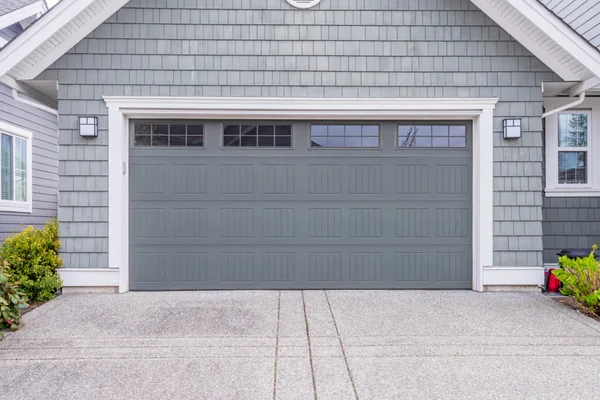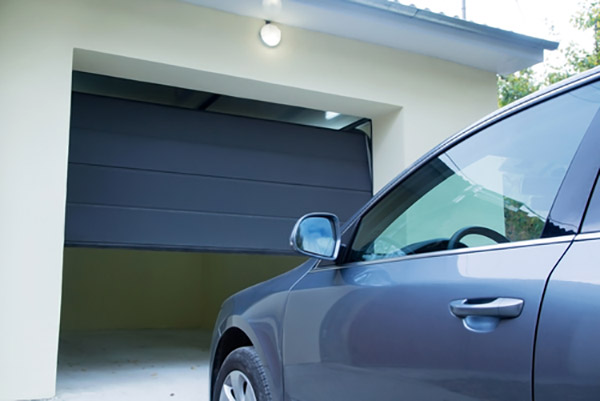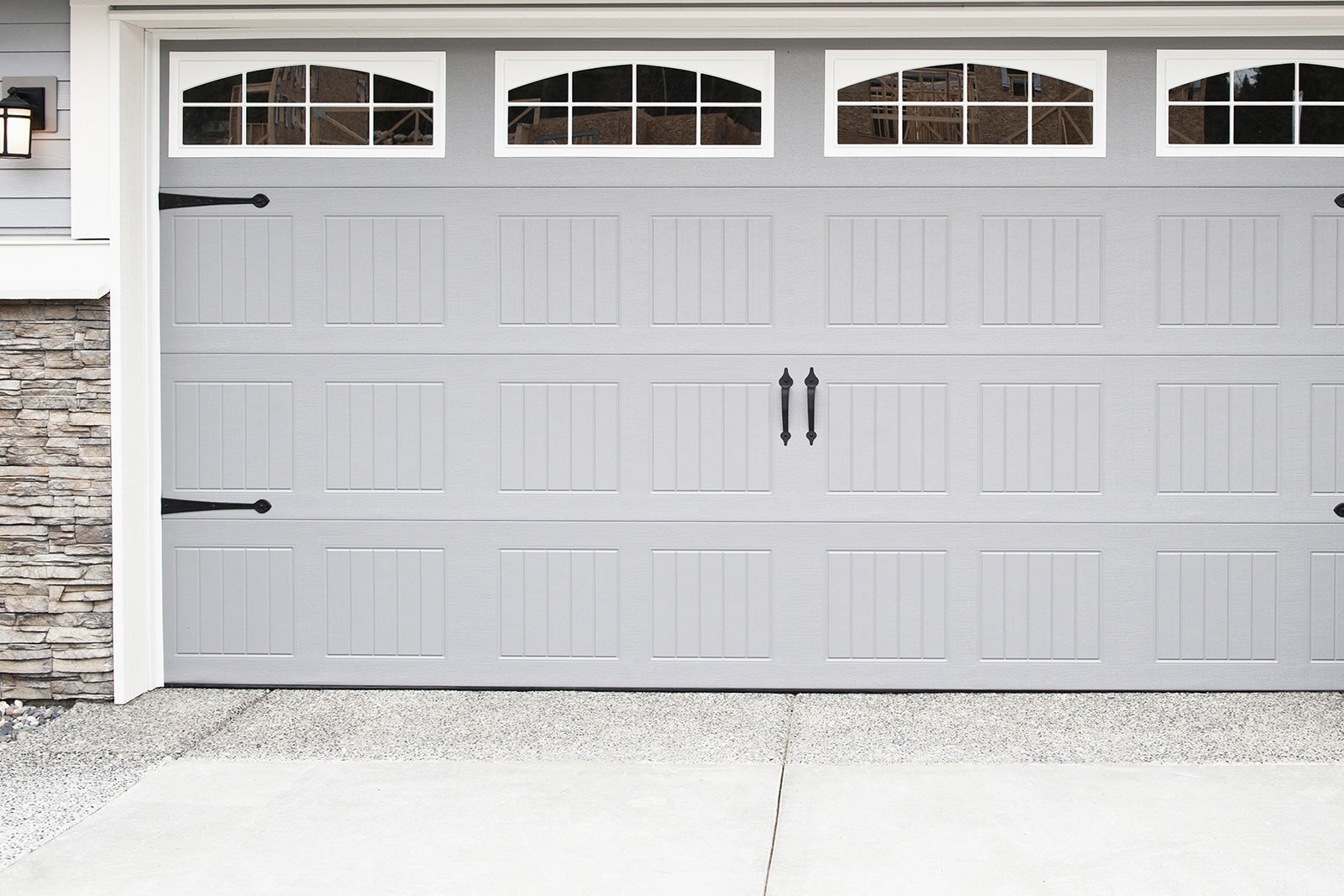
DIY Garage Door Maintenance and Repair

s there anything more frustrating than a garage door that won’t open or close after a long day? That’s why we’ve compiled a few tips and tricks on basic garage door maintenance, and steps you can take that may fix your garage door or keep issues like this from happening again.
Now, before you take off with a crowbar and bundle of determination, remember that when it comes to DIY garage door maintenance, you should to know when it’s okay to tackle the problem yourself and when to bring in a professional. Attempting certain garage door fixes on your own could result in serious injury. Namely, you should leave the springs and cables alone. Garage door springs and cables are under a high degree of tension, and if mishandled, they could snap and spring back at you in such a way that you could get hurt.
However, that doesn’t mean there aren’t plenty of other garage door DIYs you can perform yourself. Follow these tips on how to repair your garage door.
1
Wipe Off The Garage Door Sensors And Change The Remote Batteries
If your garage door won’t open or close, a good first step may be to try changing the battery on the garage door opener.
If that doesn’t work, check the electric eye sensors near the bottom of your door. Dirt, grime, and even oil can build up on these sensors and cause a communication problem, which may lead to issues like your garage door not opening all the way. If the lenses look dirty, wipe them off with a microfiber cloth. If they seem to be out of alignment, straighten them. You’d be surprised how small DIY garage door maintenance tricks like this can solve the problem quickly.
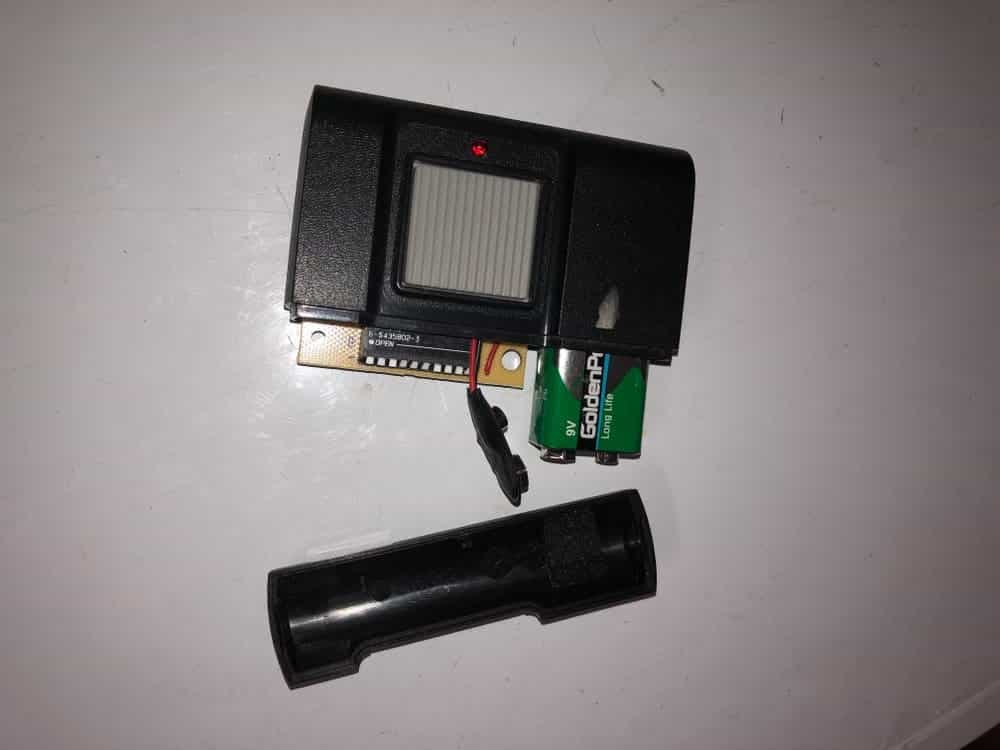
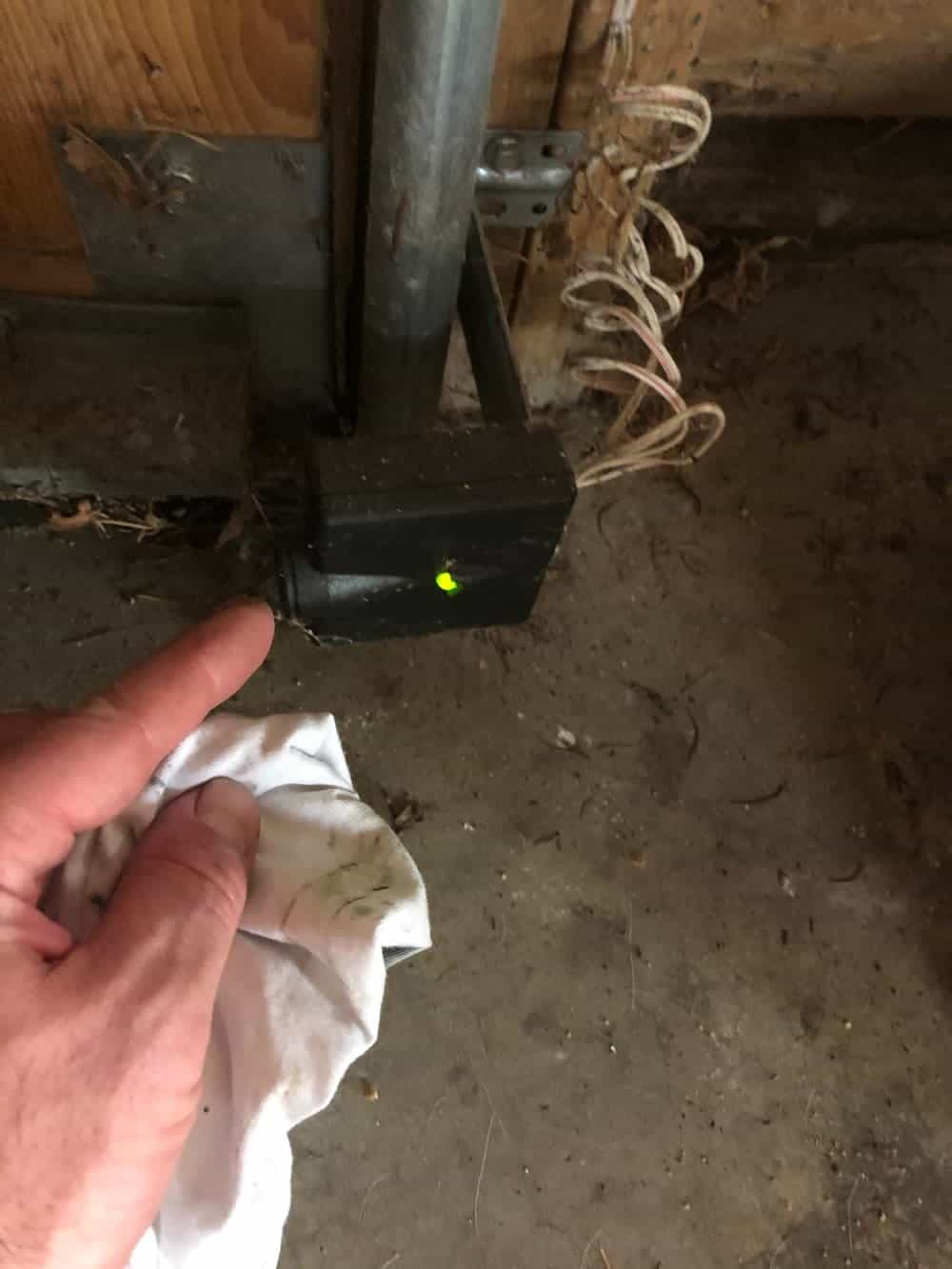
2
Tighten Nuts, Bolts, And Hinges To Fix Clattering And Rattling
Garage doors can be loud, but if your garage door is making more noise than usual, you may need to tighten the door hardware. Temperature fluctuations can cause the metal in nuts, bolts, and hinges to expand and contract, loosening door hardware over time. Tighten all the bolts that fasten your rails to the support brackets.
Check the roller brackets for signs of wear. Do not remove the lower roller bracket—it’s attached to a high-tension cable. For safety’s sake, it’s best to call a garage door repair service if this part needs to be removed for any reason.
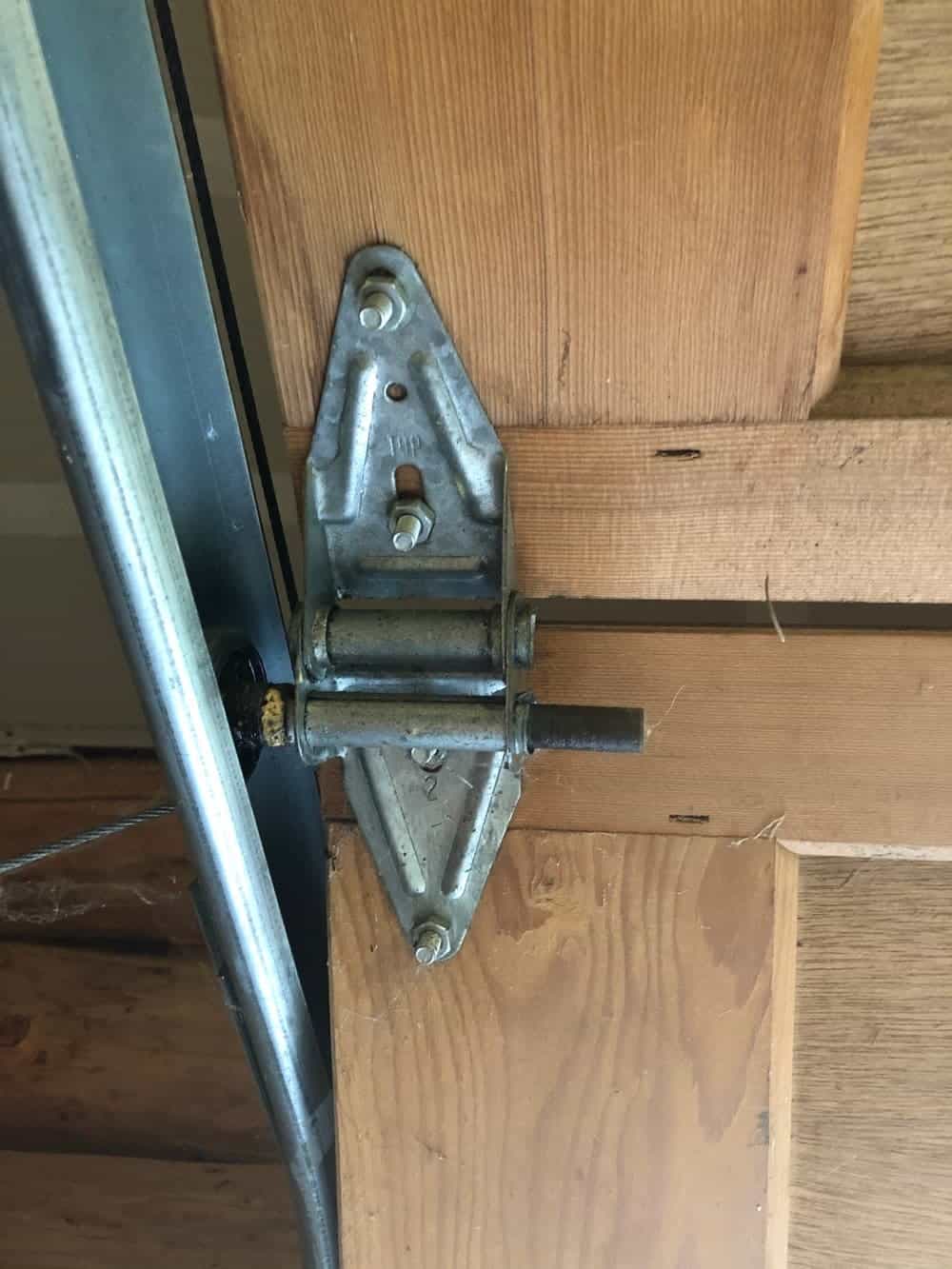
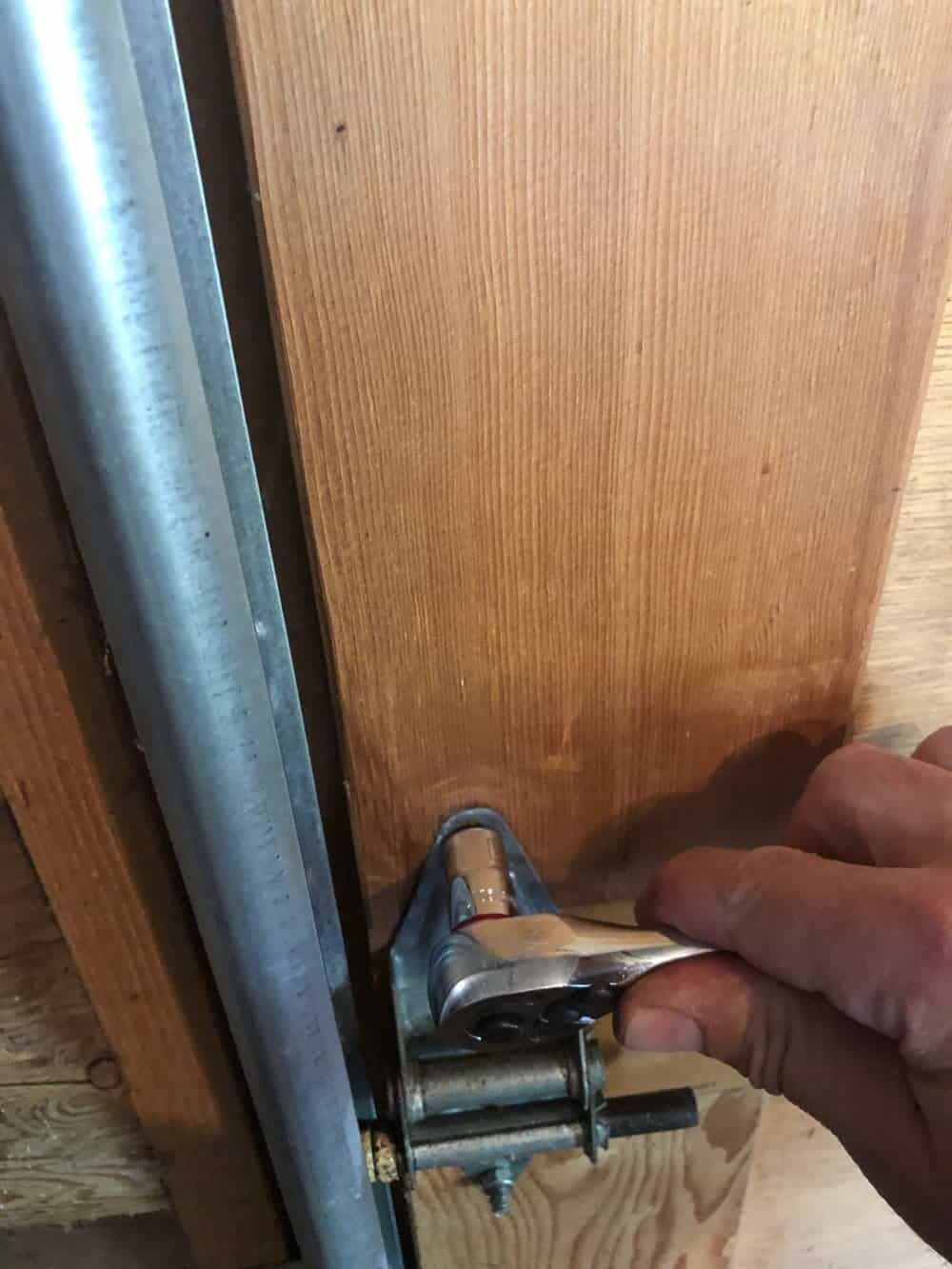
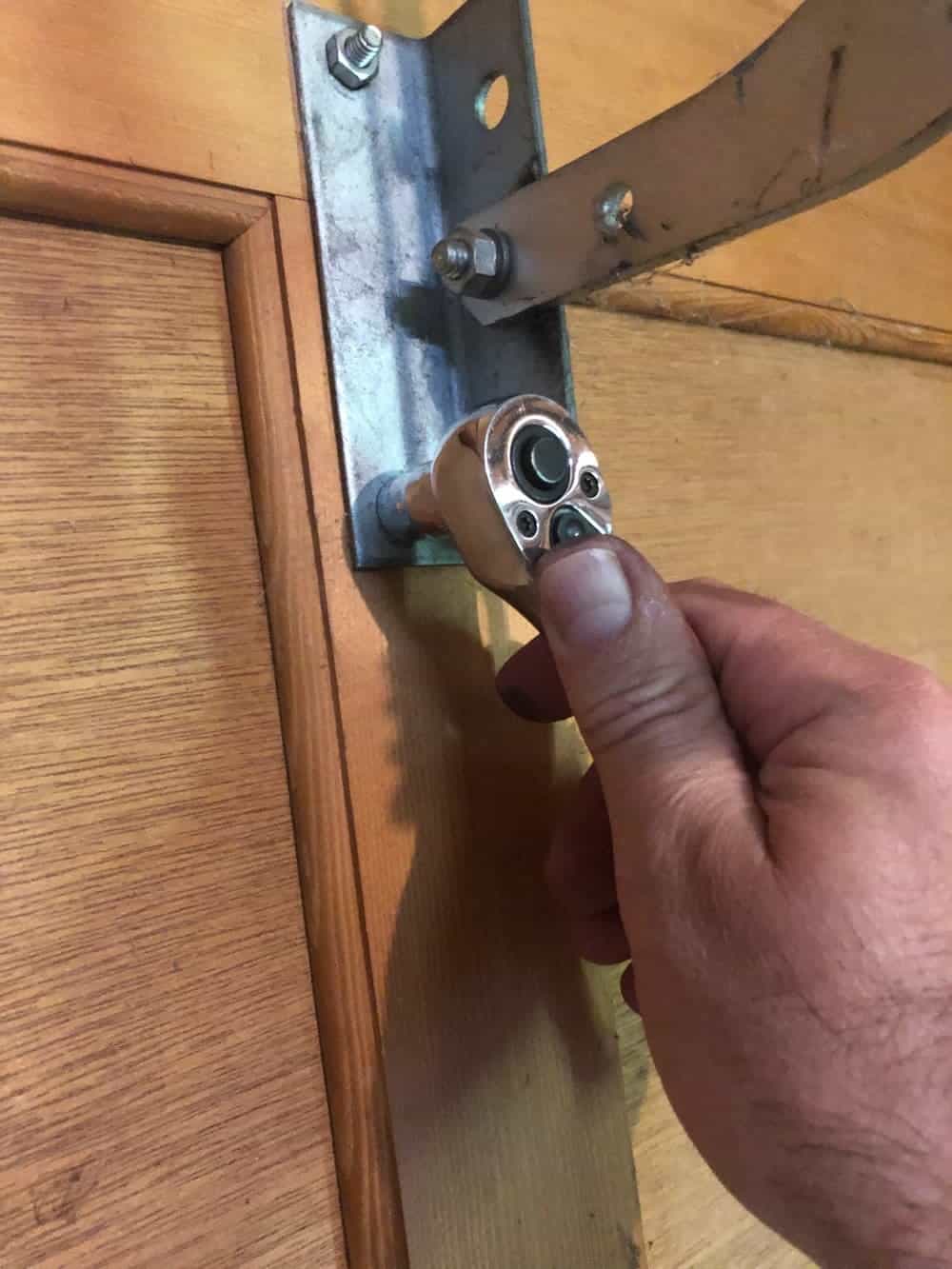
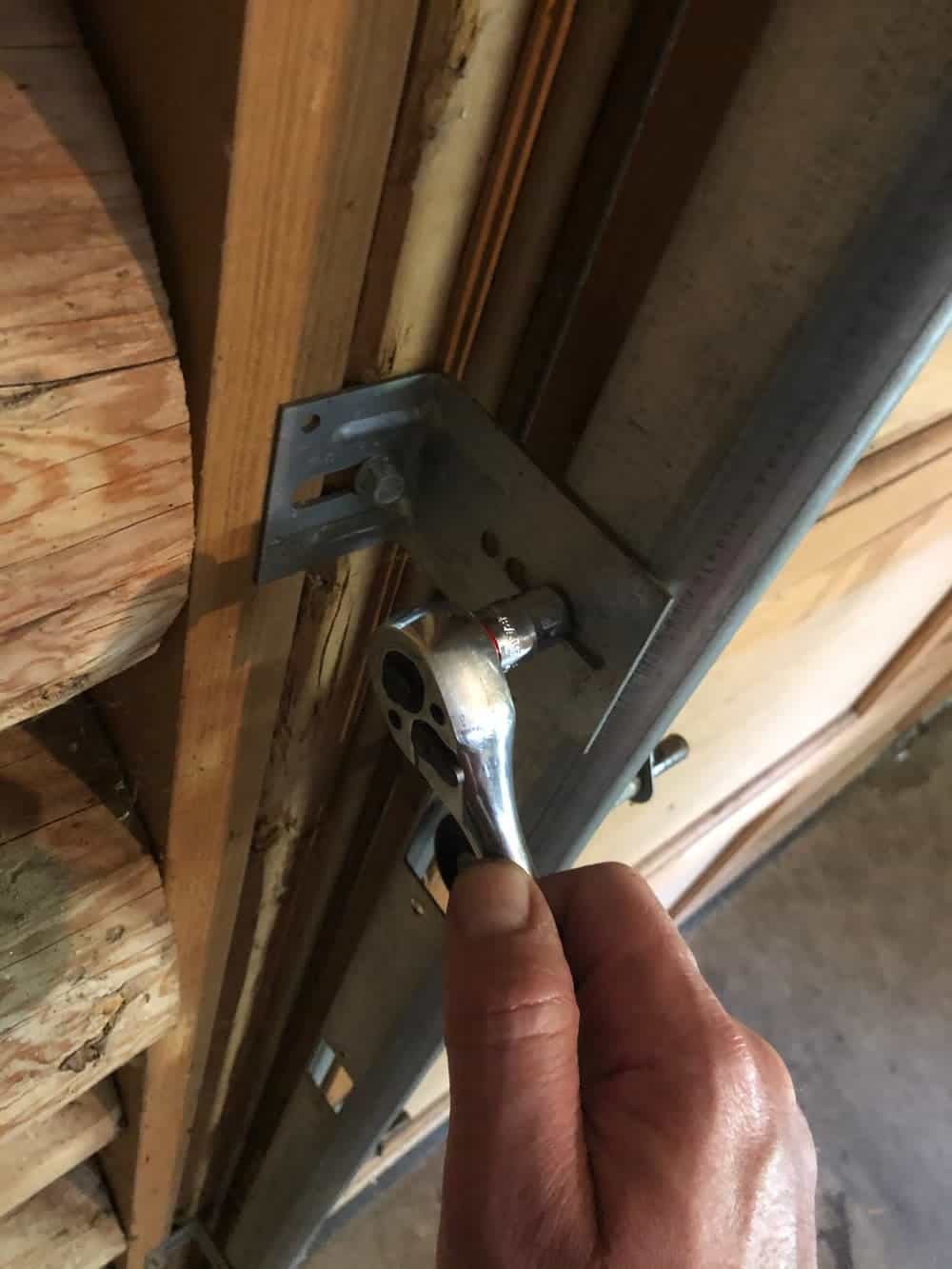
Thinking about coverage?
Sounds like a plan. Find the warranty that fits you best.
3
Lubricate The Moving Parts
If your garage door is making noise that sounds like loud squealing, squeaking, or shrieking, you may need to lubricate the moving parts. This is a good garage door maintenance tip to do at least once a year to make sure everything is moving properly.
Use a lithium-based garage door lubricant, which usually comes in a spray can. Apply it to the hinges, spritzing one or two sprays on each hinge right where it meets the bend of the track.
You shouldn’t lubricate nylon rollers, but if you have metal rollers, use the thin hose attachment on the can to spray inside the rollers. There are ball bearings in the rollers that need some grease once in a while. If you see any exposed ball bearings, lubricate them thoroughly.
Locate the springs at the top of your garage door and lubricate these thoroughly, too. Find the bearing plates, the moving circular parts on each side of the spring, and spray lubricant in the center of these and grease the outside of the spring. Spread the grease around by opening and closing the garage door a couple of times.
Since you already have the lubricant out, now would be a good time to lubricate all of the locks on your garage. Spray lubricant directly into the keyhole.
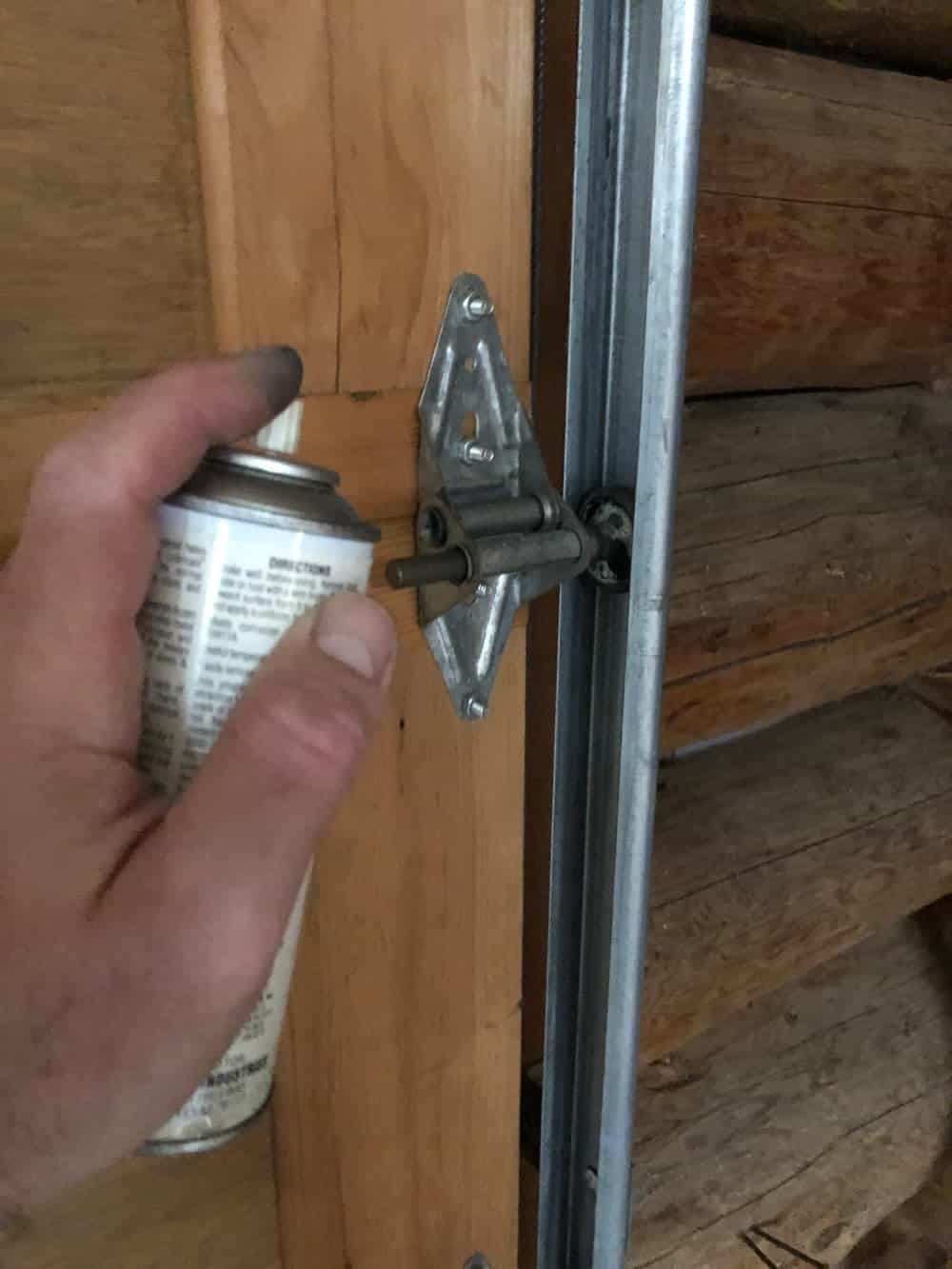
4
Clean The Tracks
Check the garage door tracks for debris and wipe them clean with a rag—a great idea for yearly maintenance as well as a possible solution if your garage door won’t open. You can use an automotive brake cleaner to clean the tracks. Do this with your garage door closed to avoid any injury. If your door is stuck open, lock it in place with a C-clamp first.
Opening a broken garage door can be tricky, so watch this helpful video on how to manually open your garage door.
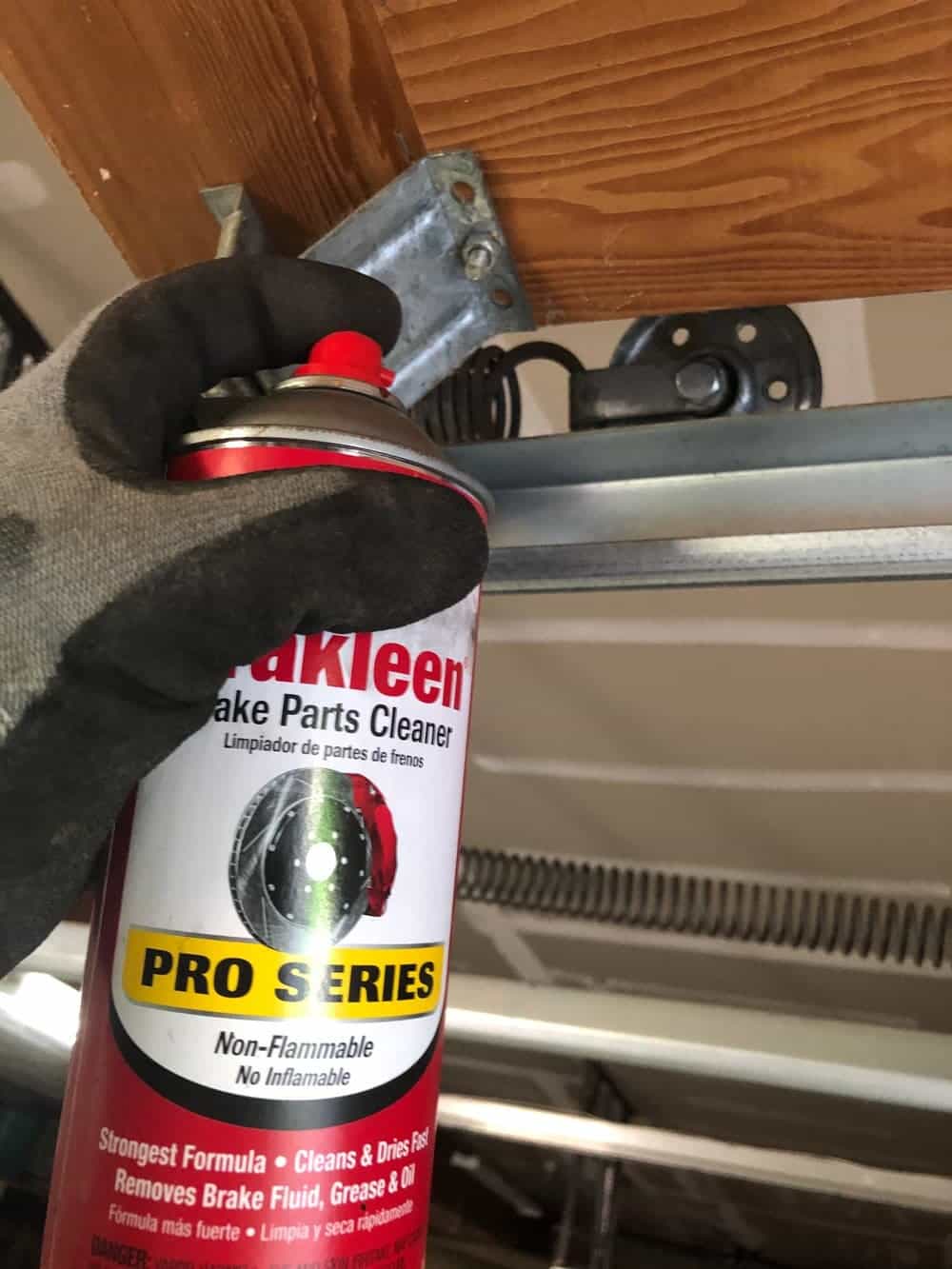
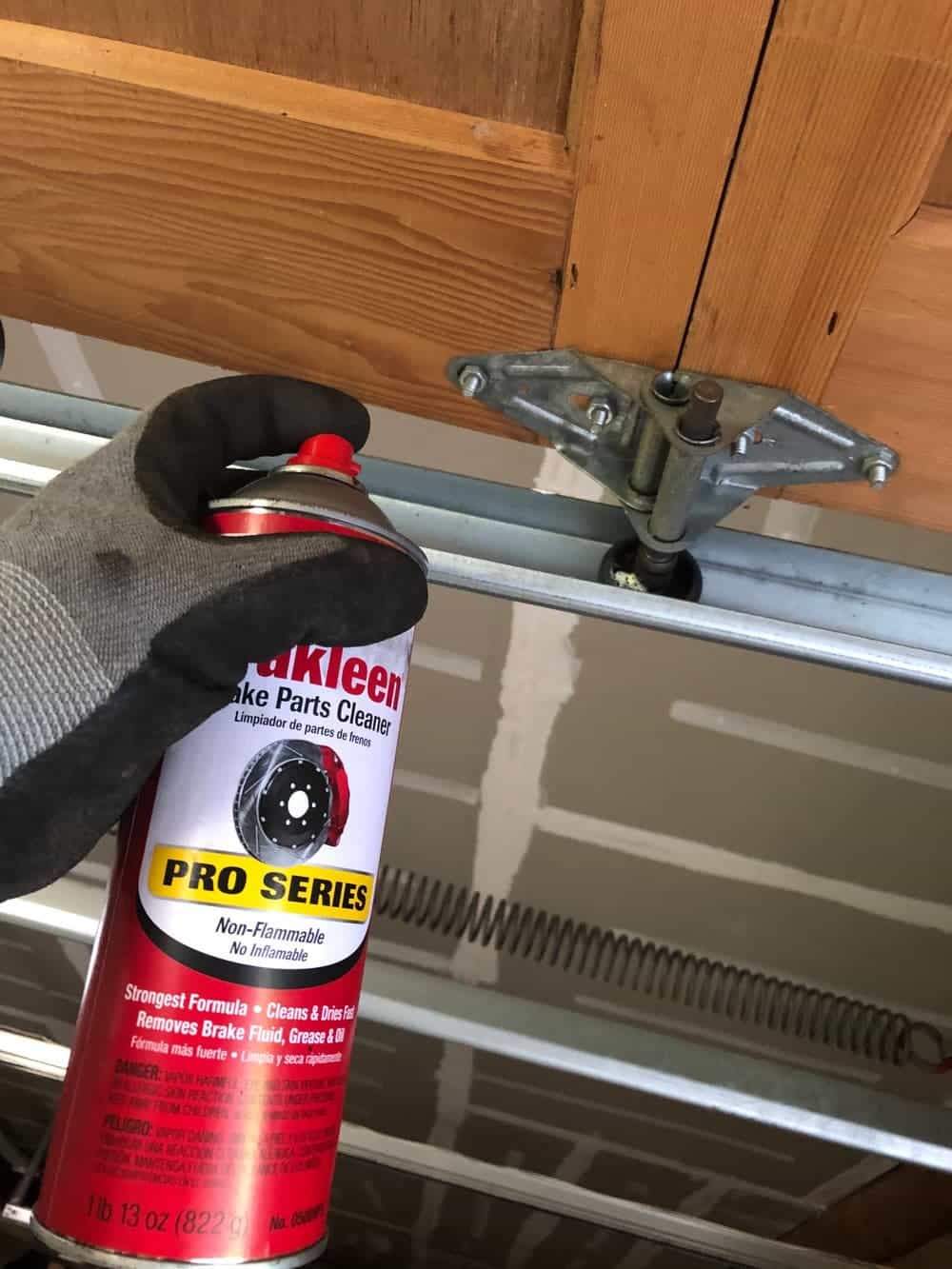
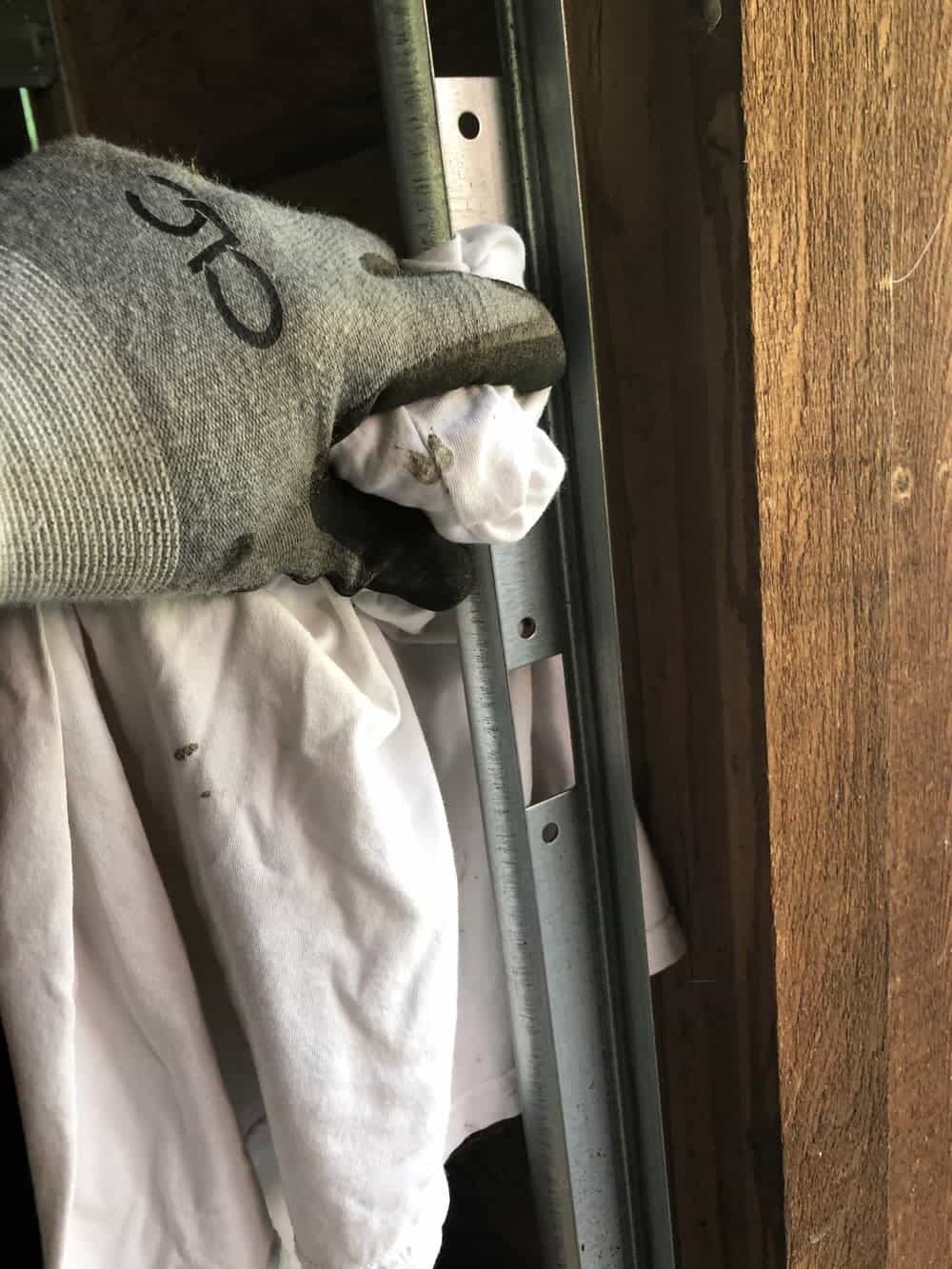
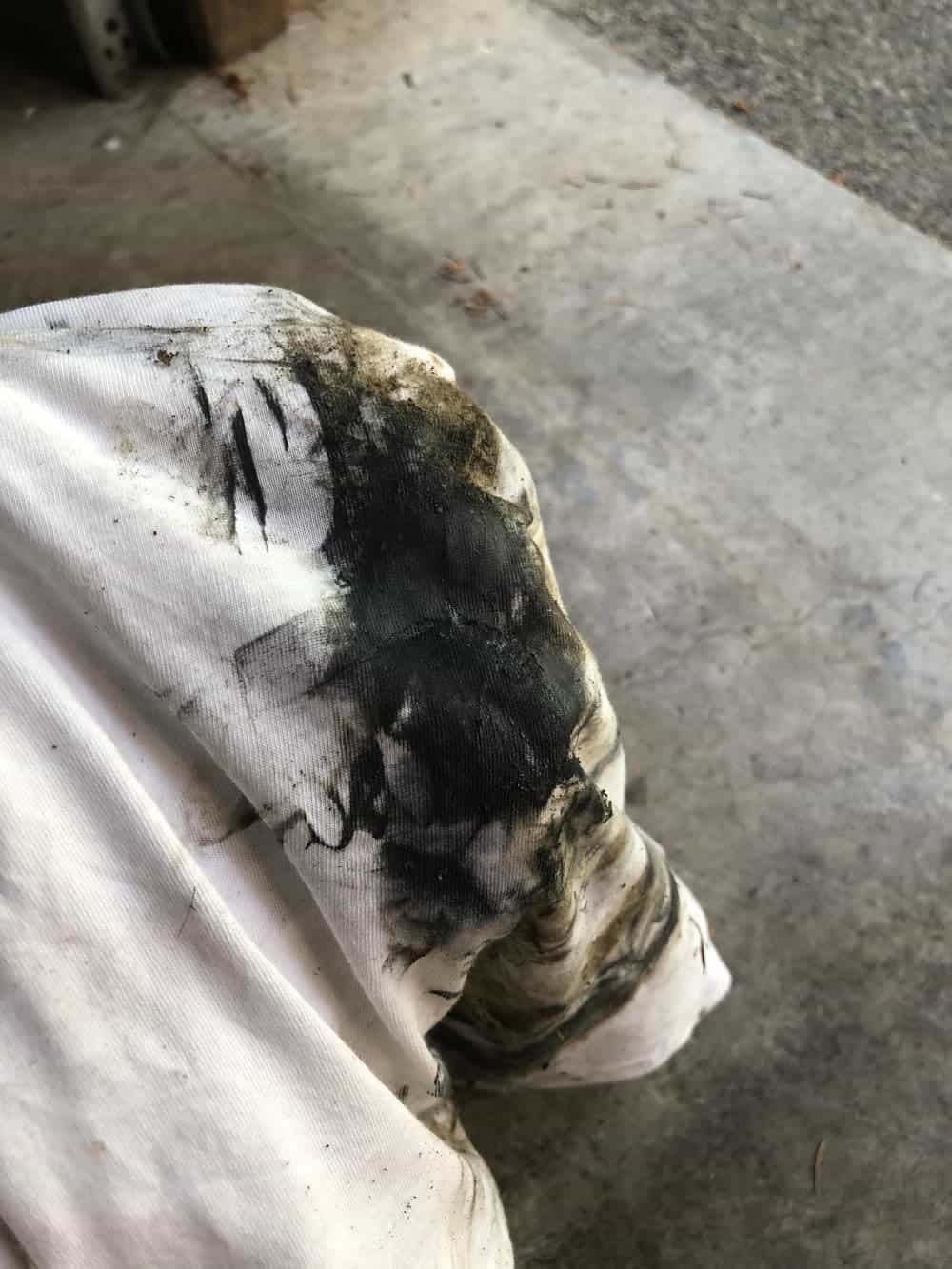
5
Repair The Weather Seal
It’s a good idea to change the weather seal every couple of years to avoid water leaking under your garage door. Most garage doors are sealed with a U-shaped astragal, which are susceptible to damage from rodents as well as normal wear and tear. They’re sized according to how wide they are when the door is closed and the astragal is squeezed flat. The wider the gap under your door, the larger an astragal you need. Most of these garage door repair parts can be purchased at your local hardware store or home center.
Protect your home by performing these simple garage door maintenance tips that will help your garage door and all the components stay in proper working order. American Home Shield also provides affordable prices and home service plans to give you peace of mind when covered appliances and systems break down. Let us take care of the big stuff, while you take care of the small things, like those weekend DIY projects.
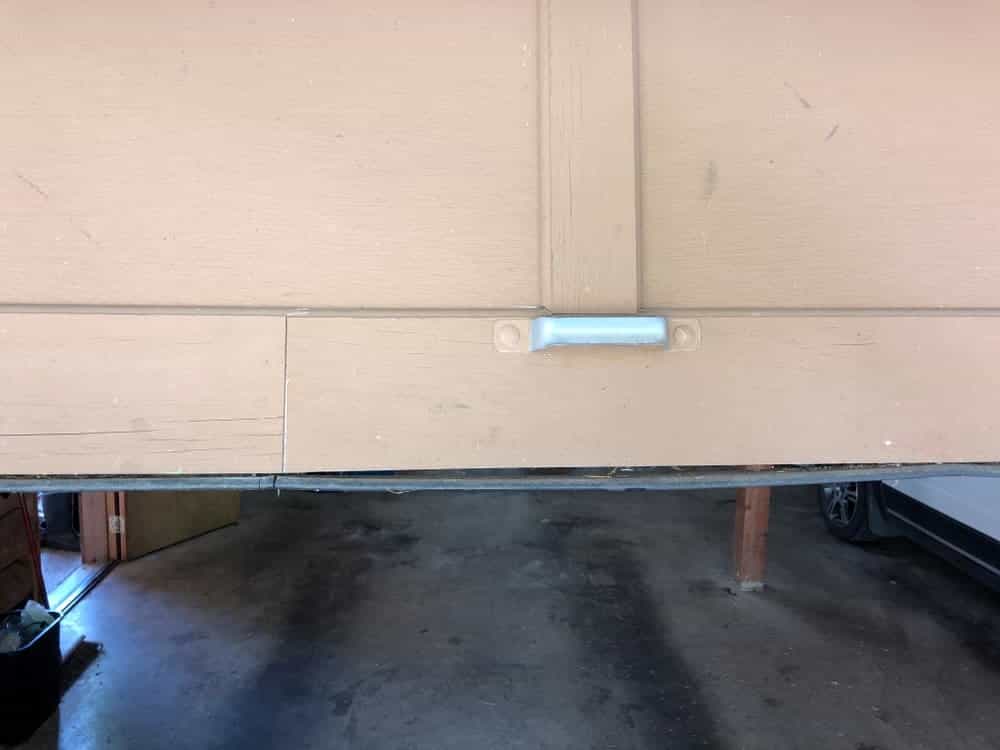
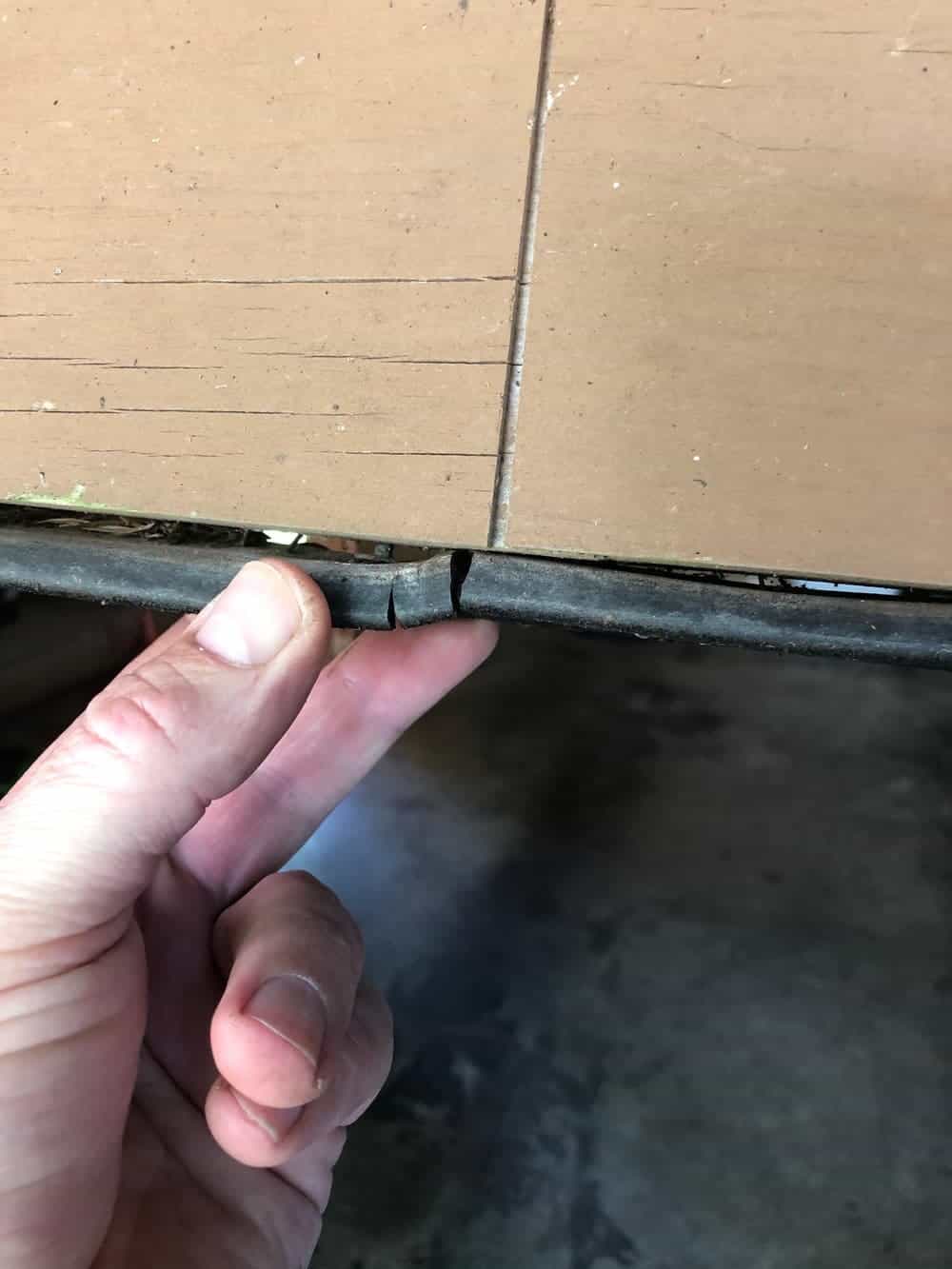
DIY tips are for informational purposes only. Please be sure to take the appropriate safety precautions and ensure your project complies with any applicable federal, state, or local laws and regulations.
AHS assumes no responsibility, and specifically disclaims all liability, for your use of any and all information contained herein.
Don't Worry. Be Warranty.
Have a plan for your home when things don't go according to plan
Shop Home Warranties